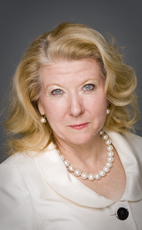Mr. Speaker, thank you for the opportunity to join the debate tonight on the Ebola virus disease. I will be focusing my comments on the actions Canada is taking to support international efforts to control its spread.
This is the largest Ebola outbreak in history, eclipsing all the Ebola outbreaks together since 1976, when the virus was discovered. It is the first for West Africa. It is also the first time that Ebola has become widely transmitted in urban areas.
The World Health Organization estimates that more than 4,300 people in Guinea, Liberia, Nigeria, Senegal, and Sierra Leone have contracted the virus since March and over half of those have died of this disease. As one would expect, the global community is on high alert, particularly since the WHO declared in early August that this is a public health emergency of international concern, and rightly so. According to the organization, cases could rise to 20,000 within six to nine months, a development that would be catastrophic.
The developing world is ill equipped to manage a health emergency of this kind. The crisis is evolving in a context of chronic fragility, in places of high poverty, and after decades of conflict and civil strife. In Liberia and Sierra Leone, health systems have simply collapsed as the virus keeps spreading through the population. People are dying of Ebola, but they are also dying of malaria, diarrhea, or of complications during childbirth because they cannot access the health system. It has become nearly impossible to keep up with the growing medical needs of populations that grow more ill by the day and that is not mentioning the strain that the virus has put on economic activities in these areas. The disease and efforts to contain it have disrupted trade and the rain-fed agricultural season, both primary livelihood sources. It is costing jobs, it is stealing incomes, and it is keeping people from supporting themselves and their families.
Traditional cross-border and inter-country supply routes have also been rendered largely impassable as entire geographic areas are cordoned off and other countries in the region close their borders and restrict access by sea, land or air. As a result, financial analysts are predicting significant GDP losses for the affected countries and for the region as a whole. Border closures and service disruptions are also keeping equipment and supplies from reaching the sick and those working to keep them alive. This situation is very serious.
Right now, this outbreak has the world's attention. The fear of the unknown can do that. However, if history has taught us anything it is that few foes can stand up to the might of a united and committed global community. In the face of unprecedented challenge, the world is capable of unprecedented action. That is where we find ourselves, at a time of action.
On August 29, the WHO launched the Ebola response road map. It is not an appeal but a framework quantifying the required response to an outbreak of 20,000 cases over the next six to nine months. It outlines the World Health Organization's requirements, as well as those of affected national governments, the World Food Programme, UNICEF, Médicins Sans Frontières, and the International Federation of the Red Cross and Red Crescent Societies. The single greatest need identified remains qualified medical staff, both international and national. These are proving difficult to mobilize or even deploy, due to air option restrictions and issues of medical evacuation. Tragically, already more than 300 health care workers have been infected and just under half of them have died from the disease.
However, this is not just a health crisis. It is now resulting in other humanitarian needs. The World Food Programme and UNICEF are scaling up their operations. The WFP will be augmenting its food assistance operation to help feed some 1.3 million people for an initial three-month period. Canada is an important contributor to the WFP, the third largest in the world.
For its part, UNICEF will be expanding its activities in the affected countries and countries of concern, including Côte d'Ivoire, Guinea-Bissau, Mali, and Senegal. UNICEF will focus on social mobilization, health and hygiene promotion, the provision of psychosocial services, the establishment of a system to identify and care for children orphaned by Ebola, and the distribution of soap and chlorine.
As a valued international partner, the Government of Canada is fully committed to supporting the international effort to combat this disease. Ours is a whole-of-government approach, which includes contributions from our embassies in affected regions; the Department of Foreign Affairs, Trade and Development; and the Public Health Agency of Canada. To date, we have been among the largest donors to the crisis response, having contributed nearly $5.4 million to support humanitarian and security interventions to help contain the spread of Ebola through West Africa.
Some of these funds are supporting the WHO, Médecins Sans Frontières, and local Red Cross organizations as they engage in their respective responsive activities. We have contributed medical expertise, an experimental vaccine, and financial assistance. We will continue to assess our contributions as the global push to bring this outbreak under control intensifies.
Canada is fortunate to be among the countries that need not fear Ebola. Our health systems are modern and strong, and medical professionals and experts have said that the epidemic is unlikely to go beyond West Africa. Indeed, the public health risk here remains low, and no Canadians have been infected to date.
Still, that does not deliver us from our responsibility to help. Canada prides itself on being there for friends and neighbours in their time of need. It is, quite simply, the Canadian way. This is one of those times when our experience and expertise can help to save lives abroad. Canadians should be very proud that their government is standing up to help.

